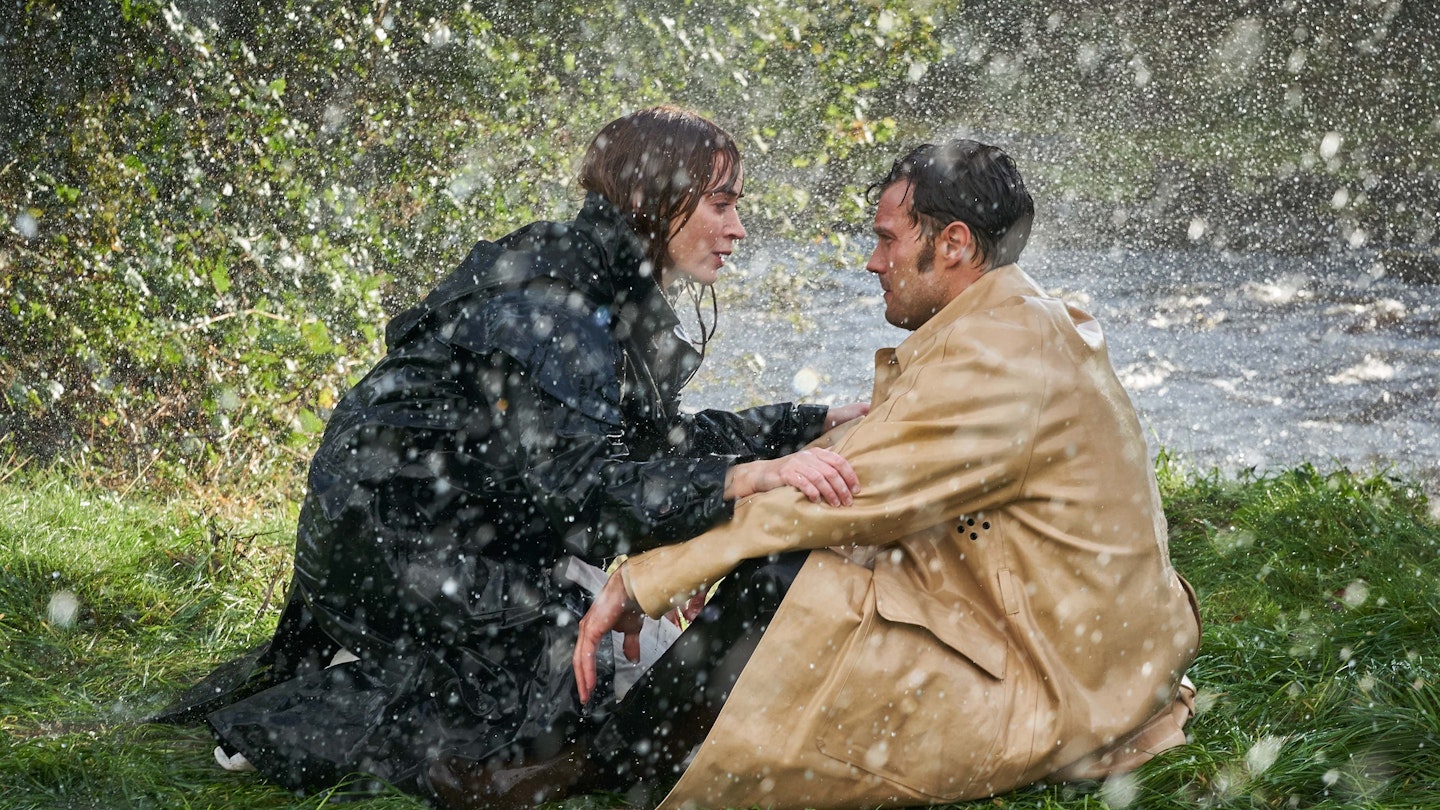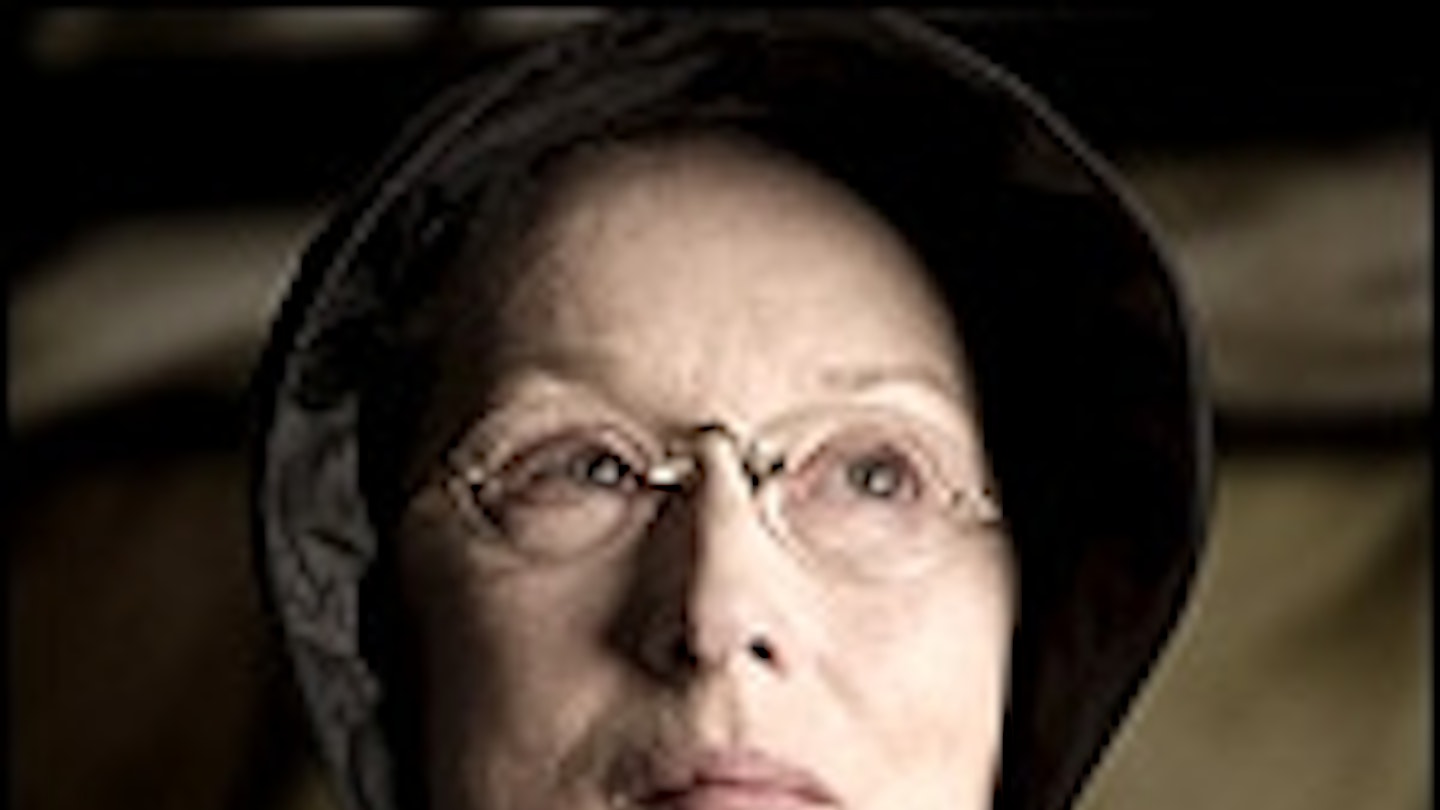Whatever your verdict on this talky triple-hander, there’s no doubting the best entrance since Darth Vader wheezed onto a dazed Blockade Runner. As the soon-to-be-suspect Father Flynn (Philip Seymour Hoffman) gives another convivial sermon, we tiptoe after the faceless shroud of Sister Aloysius Beauvier (Meryl Streep), patrolling the edge of the pews like a spectre, smacking gigglers and waking snoozers with a whisper as swift and sharp as a flick-knife. We catch a glimpse of red-rimmed eyes and sallow, Exorcisty skin looming out of the shadows — she looks as if she might have recently risen from the dead.
After bouncing up and down on a Greek mattress, fans of Streep’s dignity will be thrilled to find her contained in this seething hiss of a nun. Like The Joker she’s a Gothic showpiece, part Miss Marple, part Wicked Witch. Streep, though, slips something human between the gusts of piercing anger: wry grace notes written into her pursed lips and arching brow.
Faithfully adapted from John Patrick Shanley’s own Pulitzer-winning stageplay, this was destined to be a film about performances, but it is shakily close to being a film about a performance. Streep is like the earthquake in a disaster movie; everyone else is just negotiating her aftermath.
As the title suggests, we are beset by questions but few answers. Has this man, so apparently decent, really taken advantage of an altar boy, the only black pupil in the Catholic school Sister Aloysius presides over like Stalin? The evidence is paper-thin, but her certainty comes ironclad. Behind all this loquacious evil-mongering, the real subject seems to be faith itself — if you can believe in an elusive deity, is it so hard to be convinced of a crime without firm evidence?
Shanley’s play is not a natural fit for the big screen. It’s a flurry of violent head-to-heads designed for the unshifting planks of theatre: you are told much, but shown very little. So intent is the writing on keeping us in doubt — the question of Flynn’s guilt is tantalisingly open — there come inevitable frustrations. Amid the whirlpool of accusation and counter-accusation, ambiguity and suggestion, you’ll lose faith we’re getting anywhere at all.
As director, Shanley, who hasn’t dabbled since the tepid rom-com Joe Versus The Volcano, shows little guile. He creates an appropriate period setting cloaked in autumnal browns or the grubby whites of New York snow, but where Ron Howard found a smooth dynamism to accelerate Frost/Nixon out of its stage origins, Shanley tries feverish excess. His movie clatters with nutso Dutch angles and great burps of Biblical symbolism like a Roger Corman quickie: storms rattle at windowpanes, bulbs fizzle, even food becomes a fleshy portent of something or other.
Streep is thunderstorm enough. In her performance you have every reason to see the film. She is the most interesting question — what is the wellspring of that bile? Some long-festering wound from a past life? The slackening of old-school values? The boys’ club of the Catholic order? Or is it God who has let her down? The final scene is slippery — more ambiguities still — but it’ll send you out chattering: what do those tears signify?




